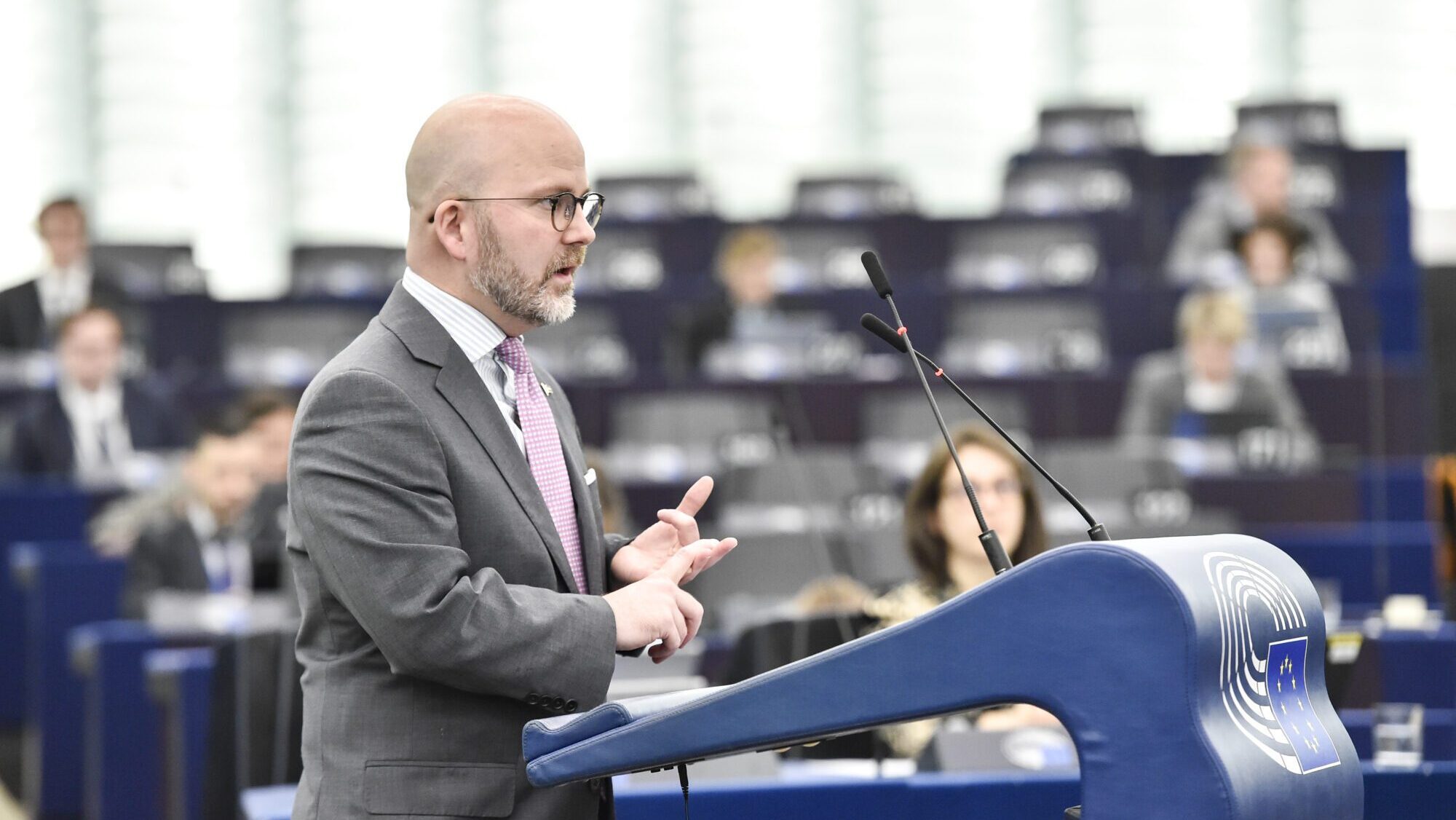
MEP Charlie Weimers.
Photo: Eric Vidal / © European Union 2024 – Source: EP
MEP Charlie Weimers, the leader of the Sweden Democrats’ (ECR) European Parliamentary delegation, submitted a motion for resolution on Monday, September 30th, calling for an EU framework to combat cross-border organized crime by allowing member states to impose travel bans on convicted offenders within the Schengen zone and thereby protecting the integrity of the EU’s free movement area.
Specifically, the document calls on the European Commission to introduce an “individual ban on the freedom of movement (IBFM) framework” that would be applicable to career criminals, repeat offenders, and “anyone aiding or assisting organized crime gangs.”
In practice, the framework would empower member states to prohibit entry for criminals based on certain criteria, and in some cases (such as repeat offenders of members of known organized crime groups) even to issue “lifelong entry bans.”
Furthermore, the resolution calls for the framework to automatically apply to “anyone who has crossed the external borders illegally and for those persons to be subjected to mandatory detention until they can be deported.”
SD-förslaget kommer först till utskottsbehandling i LIBE. Då får vi se om @EPPGroup verkligen vill göra allt för att knäcka gängen och stoppa stöldligorna.
— Charlie Weimers MEP 🇸🇪 (@weimers) September 30, 2024
Förhoppningsvis kan @tomastobe övertala sin grupp att stödja vårt initiativ. pic.twitter.com/nxVjg1aHzc
The idea to automatically issue lifelong entry bans for illegal migrants is based on the so-called ‘Australian model’ or ‘No Way’ policy, which has proven to be one of the most effective deterrents against illegal entries in the past decade and therefore serves as a model policy for the European Right, even though it’s rejected by mainstream parties time and time again.
But the need for drastic measures is becoming increasingly clear as news of organized crime groups spreading violence across Schengen borders is becoming commonplace in Western Europe. The problem is especially acute in Sweden, where local migrant gangs now regularly extend their operations outside of the country, forcing neighboring states like Denmark, Norway, (and even Iceland) to take special measures and even contemplate reinstating hard borders with Sweden.
The Sweden Democrats’ draft resolution justifies its call for action by pointing out some obvious truths that the European Parliament has ignored for too long, starting with the fact that the only way to preserve free movement across internal borders of Schengen is to implement effective external border controls, something that’s still lacking in the EU’s policy framework.
In more depth, the document also explains that the recent years’ “massive” increase in illegal entries has resulted in “parallel societies” that often finance their existence through criminal activity; that economic disparities between member states incentivize secondary movements within the Schengen area, primarily from the southern ‘frontline states’ to north-western Europe; and that cross-border crime not only leads to financial and societal disruptions but also to a “loss of trust in national authorities and EU institutions.”
Apart from forcing the Commission to respond, if the Parliament were to adopt this resolution, it would also mean it finally acknowledges these facts, enabling a more constructive debate about illegal migration in Brussels. However, it’s safe to assume that the centrist EPP and the leftist parties’ ‘Ursula coalition’ will simply reject it in the plenary rather than admit their approach was wrong all these years.
That is if the document is even allowed to reach the plenary and is not thrown out by the Parliament’s civil liberties (LIBE) committee immediately. LIBE is now chaired by Tomas Tobé, another Swedish MEP representing the EPP, who was the rapporteur of the new Migration Pact, the EU’s flagship policy package that has been criticized by the Right for years for effectively leaving the external borders wide open for illegal entries.
Still, as organized crime is currently the number one topic in Tobé’s home country Sweden, his Moderate party also made the fight against criminal migrant gangs a priority. During the September plenary, Tobé identified organized crime as one of the biggest threats to Europe’s internal security and called for common EU action by strengthening Europol’s mandate—although stopped short of making any connection between crime and migration.
Once the Sweden Democrats’ resolution is in LIBE, “we’ll see if the EPP group really wants to do everything” to stop these criminal gangs, Weimers wrote on X. “Hopefully, Tomas Tobé can persuade his group to support our initiative.”
